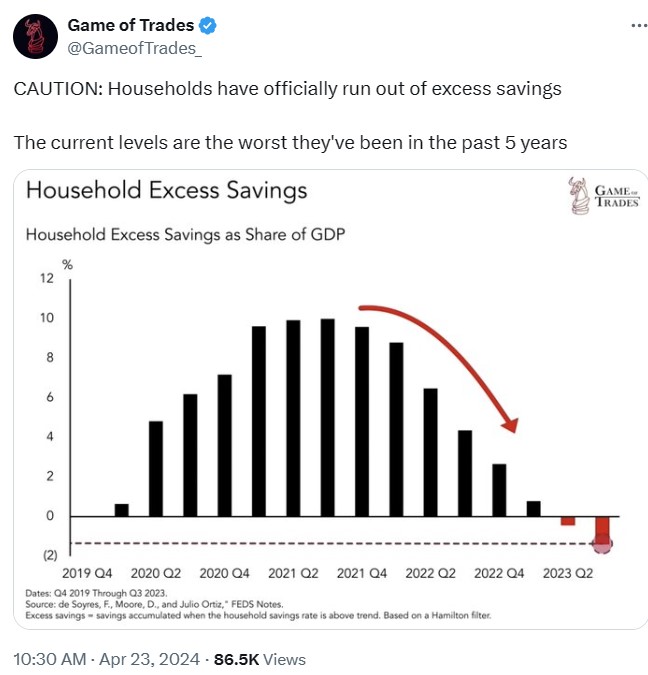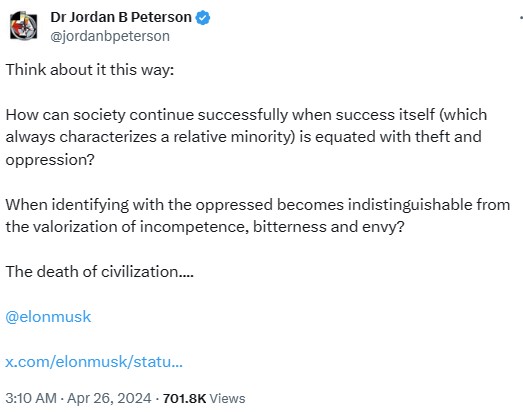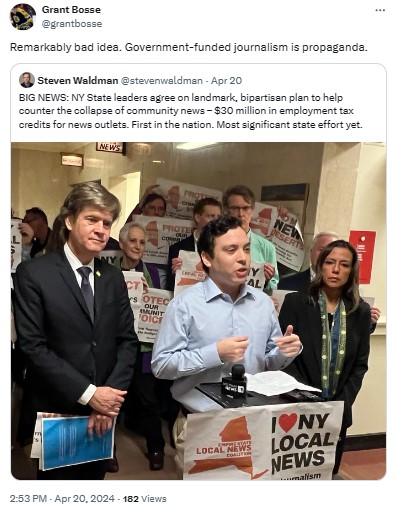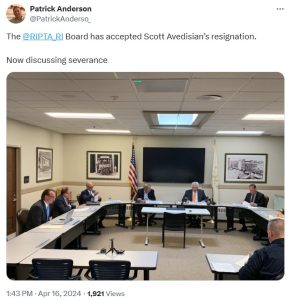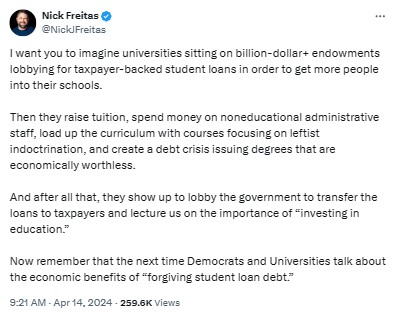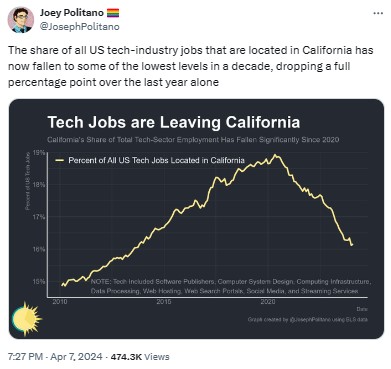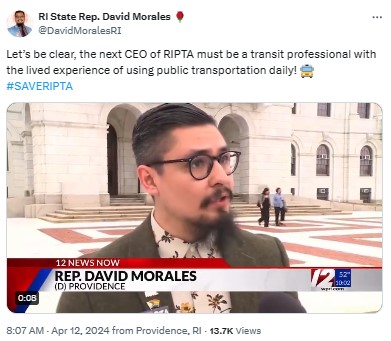And they’re both artificial thresholds created by interventionist policies. realEstateTrent makes a great point, here: Progressive policies, which shift decision-making to the blunt tool of government, create these unhealthy thresholds everywhere. People stay on the public dole because they’d have to earn so much money for a job to be worthwhile that no job…
Catching up on email, I came across this October article from the American Stewards of Liberty about a federal push for conservation areas: The Service is planning to acquire 250,000 acres of private land in the new federally designated area by offering “voluntary” conservation easements in perpetuity to landowners. Those who do not want to…
The featured image of this post compares the original cover of Mountain Music by the band Alabama with the censored version now used for music streaming services. I should specify that I’m not alleging the band and the companies that manage its music were forced to make the change by a government agency, but censorship it…
The short answer is that we shouldn’t, but Bill Bartholomew’s attempt is worth a double-take and some thought about what he’s missing: at nearly 68k, Scott Avedisian’s termination payment is almost as much as the contract that the most exciting player in college basketball, Caitlin Clark, signed after being selected first overall in the WNBA draft…
Somehow, despite ample reason for civic disappointment, I find I’m becoming less cynical as I get older, not more. Even now, when I come across reasoning like that expressed by young progressive Democrat Representative David Morales, I can’t help but feel hope that we can salvage reason from the flames of ideology: Here’s the reality:…
The point can’t be stressed enough that Rhode Islanders should understand the Washington Bridge debacle as a representative lesson on our state government. For that reason, not the least, Mark Patinkin’s conversations with local affected business owners is an article to print and review periodically in the future. Restauranteurs and venue owners bought and built…
Arguably, Eric Abbenante— overstates the degree of “debate” in this clip featuring Dr. Phil and Bill Maher, but the difference in point of view he highlights is the crucial one. Here’s Abbenante: Bill Maher and Dr Phil debate the importance of family and religion: “You think family and faith are a big fix to the…
Brandon Busteed’s argument in Forbes well taken: U.S. teachers are dead last among all occupational groups and professions in feeling their opinions count at work, that their supervisor creates an open and trusting environment and that they are treated with respect each day. Teachers are also the highest of all professions in experiencing burn-out and…
Whatever one’s political leanings, the incentives of government must be understood as simply reality. Government agencies don’t have to create a product or service that people will voluntarily purchase. Rather, they must find activities for which they can justify forcing people who are not the direct beneficiaries to pay. This model is justified, in some…
By its nature, advocacy journalism glosses over the details that many would consider crucial. Headlines from a pair of such articles by Katie Mulvaney in the Providence Journal illustrate the point: Six months pregnant with nowhere to go – an unhoused woman’s plight on RI’s streets After months of sleeping on the street, pregnant woman finally…
In the last couple decades, Americans (at least those who occupy seats in academia and mainstream media) appear to have lost their ability to distinguish between upholding a principle and supporting any given people who might benefit from that principle from time to time. Nobody likes to defend groups that are broadly deplored, like Nazis…
Almost in passing during a recent podcast featuring Greg McKeown, Tim Ferriss stepped into an idea I’ve been contemplating lately: [A]s my job, I interview some of the top performers in the world, hundreds of them, and the change that I have seen for those people in that subset who are already, I think most…
Lance Lambert, who appears to be a reporter on the housing beat, shared a table of increases in housing prices in the 50 largest metro areas. As the following snip from the table shows, Providence experienced the third-largest increase over the past year: Various contextual points are important to remember. Metros can vary in size,…
For those willing to step outside the boundaries of “just the way we do things,” the justification for mandatory schooling backstopped by taxpayer-funded government schools is an interesting question. I’d pick up the rope and pull for the “yes, justified” side. A country founded on freedom and individual achievement and held together by abstract agreement…

Note something about the riotous behavior reaching American campuses, as Ted Gehring spotlights, here:
The last go-round of riots took place mostly in urban areas, this one has been on campuses. Granted that they’re often in urban areas, but their attack on colleges seems like the revolutionaries’ taking another step. One or two more and they’ll be in the suburbs.
This isn’t to say that people in the cities should be expected to put up with this stuff while those in the suburbs should not. (This stuff shouldn’t be happening at all.) Still, I haven’t seen much consideration of the value to a society of having enclaves and a path to greater calm and order. Instead, we get so bogged down in superficial arguments about class and race that we risk losing sight of underlying factors that make our society as dynamic as it is.
This video of a police interaction with a young couple entered my awareness at a moment of reduced willpower, so I watched it. Although it escalates from a towed car to an arrest and flirts with even more-dangerous outcome, the entire twenty minutes is primarily a display of young adults, feeling their economic oats, whose lessons on responding to the world were… incomplete.
One twist occurred to me, though, related to police protocol. The arresting officer was male, so when he arrested the female, he placed her in his car and then called for a female officer to drive to the scene and search her. What is the woke thinking on such things? What if the second officer weren’t biologically female, but only identified as a woman? Once this question lands on the table, things we’ve been able to take for granted become murky. Why do we think a female should be more comfortable with another female touching her body? If the woman objected to an officer who only identified as a woman touching her, would that be reasonable? Could adding these variables escalate such tense interactions to the next level?
Progressives deny it explicitly, but there is wisdom in things people just feel to be right and proper.
“Had the girl not broken the law by purchasing and using pepper spray, she likely would have been raped — or worse.” Sure, the story Stephen Green is sharing comes from Denmark, and sure, one big advantage we have in the United States is the Second Amendment. But policies change and, increasingly, our rights can go unprotected.
Overbearing government will come down hardest on those it can control, and we can’t afford to let it come to the point that we have to decide between protecting ourselves (increasingly often from people the government has let into the country or let out of prison with unreasonable leniency) and following the law.
This may be part of the answer, and certainly corresponds with my experience:
They can be won, as James Brooke suggests in the The Sun:
In the latest sign of a rightward swing of the pendulum in Latin America, voters in Ecuador opted overwhelmingly for tough anti-crime measures, including joint army and police patrols against cocaine gangs.
Ecuador is only one example.
This reminder does not mean the border does not need to be brought to order or that the Democrats’ illegal immigration flood should be absorbed in entirety. It also does not mean Republicans should try to win immigrants’ support the same way Democrats do: by pandering to them and trying to win their votes.
Rather, Republicans should put in the effort to craft a genuine and coherent set of policies with positions many immigrants will find attractive. Furthermore, they should not dehumanize immigrants, as Democrats do when they instrumentalize and infantilize them. Rather, even when policies involve options for deportation, the humanity of people seeking a better life should never be forgotten.
Too often we lose the debate to progressives when we accept their emotionalist intellectual shortcut. The fact that somebody is deserving of compassion does not mean the appropriate actions of others is obvious. The success of the West is premised on trying to bring people into the fold and to offer them a path toward mutually beneficial relationships. Keep that always in mind.
This has become a focus of the Providence Journal’s city reporter:
What stories is Russo not covering because she’s spending so much time on this one? Why is a personnel matter at a private organization newsworthy?
As for the content, it finally provides some explanation for a mythical cliché. I’ve never understood the rule that you had to invite a vampire into your house. The rule applies well to DEI “professionals.” Once you let them in, they’ve got you. That is the critical decision point.
With that perspective, I’d suggest that America works better when voters put the adults in charge but then laugh at them through media and entertainment. Once, adults could be of either party, but they became increasingly of the Republican variety. Unfortunately, voters’ frustration with the inability to return to adult policies is loosening that rule, too.
That said, what we need above all is a division between government and social and cultural institutions. That means electing problematic Republicans so the media can come closer to fulfilling a healthy role, rather than acting as propaganda organs for problematic Democrats.
That’s why, although I agree with Jordan, here, I think he’s a step away from the key point:
We must reframe. A libertarian lean is correct, but valorizing success won’t work. The impulse to identify with the oppressed has to be changed to wanting to help people, to make THEM successful. It’s the principle at the intersection of Christianity and free markets.
This exchange between CNN’s Kaitlan Collins and former U.S. Attorney General Bill Barr has made the rounds and received its share of commentary:
To my mind, the most telling part is when Collins looks for a comparison among conservatives to progressive bureaucratic government impositions and points to a local library debate. What Barr should have asked is: “Do you think you’ll have a better chance changing policies you don’t like in your hometown or in Washington, D.C.?”
The notion that different activities are appropriate at different levels of government is too often glossed over, and it’s central to our civic system. Arguably among the biggest contributors to growing division is the sense that progress means political questions are answered at higher and higher levels. In that view, it’s great if your local library board promotes your beliefs, but it’s even better if the federal government does, because it affects more people. That isn’t the pluralistic ideal of self-governance on which our country was founded.
The concept of triangulation used to mean politicians looked at the political landscape and positioned themselves on the field to advance their policy goals. The worsening development, facilitated by mass media and social media, is the attempt to manipulate the landscape. That’s where we start to think of the Overton Window, shifting the range of positions people think are acceptable, and it’s what we see here:
I think Jonah misunderstands (or pretends to misunderstand) what’s going on, here. Democrats (among whom I count the mainstream media) promoted Trump and are doing everything they can to paint him as a monster because the worse they make him out to be the worse they can be. That’s why Barr is right that, in a binary decision, Trump is preferable, and not seeing it may be why Jonah has taken his wise reservations about Trump so far as to be an error.
One suspects mainstream journalists don’t see this as a problem because they can’t imagine reporting any differently just because the governments they support are directly paying them money:
And realistically, we’re finding in Rhode Island that government PR is such a lucrative next step for journalists that it’s more a question of whether they work for government sooner or later in their careers.
The headline of a Alexa Gagosz’s recent Boston Globe article asks, “Will tenants unions make a difference in Rhode Island’s housing crisis?” The answer, we can be confident, is “yes,” although it will make a difference by making it worse.
The state’s problem is insufficient housing, and the only durable, healthy way to give tenants, workers, or any group of people, more power is to give them more options. Using progressive-style union activism power creates disincentive for people to work together, and working together includes one person creating an apartment for another to rent.
A street protest against a big landlord will make people considering becoming landlords rethink. When the easy compromises are exhausted and landlords simply refuse demand, politicians will take it as an excuse to tighten the legal noose. That will lead to even less housing.
As with most policies, what’s needed is to think of both sides as human beings, to think of the incentives that govern their cooperative interactions, and to get constraints out of the way, not build up more hurdles and obstacles invented by politicians. They serve special interests (note that one of the elected representatives in the story is actually a union organizer) and have no expertise.
Here’s the Boston Globe’s description of the people leaving Massachusetts:
Boston Indicators, the research arm of the Boston Foundation, published an analysis exploring trends in so-called domestic outmigration in Massachusetts, or people leaving for elsewhere in the United States. Looking at a two-year average across 2021 and 2022, the analysis found that the people moving out of Massachusetts were predominantly white, middle- and high-income earners, and college-educated.
Particularly dire: Working-age adults are leaving in droves. On net, Massachusetts lost an average of 22,631 people ages 25 to 44 across 2021 and 2022 — the largest number of any age group and a marked increase over previous years, according to the report. For perspective, that’s about the size of the population of Winchester.
It’s been about 20 years since I started warning Rhode Island that our data told a similar story, and I coined the term “productive class.” Rhode Island and now Massachusetts are driving out precisely those people who move an area forward: those who are primed to transform their time and talents into productive activity.
Lose these folks and, as we’re seeing in precipitous experience in the Ocean State, you get the government plantations, which involves special interests using government to make government the areas core occupation by finding clients for government services and looking for excuses to bill other people. That model won’t last long, probably not even to the point that the mid-career special interests are ready to cash out and move to Florida.
Whatever one thinks of Avedisian, seeing Alviti in this picture is a reminder that state government incompetence can harm the lives of hundreds of thousands, but it’s the guy who leaves the scene of a fender bender who’s shown the door.
As he’s done for a long time, Mark Steyn zeros in on the truth with panache:
There are times, however, when it is necessary not to conceal it. This week’s Trump Trial of the Week is the bazillionth attempt by the ruling party to nail the leader of the opposition on …something, anything, whatever’s to hand. So naturally a certain artfulness is required. In this case, if one accepts as true the charges of corrupt prosecutor Alvin Bragg, Trump paid former crony Michael Cohen to pay off Stormy Daniels. Which would be a falsification of business records. Which is, under the “laws” of New York, a misdemeanour – albeit one in which the statute of supposed limitations has already kicked in. So Bragg is arguing that the expired misdemeanour is actually a non-expired felony, because it was used to cover up another crime.
What other crime he has not said. And, as is now familiar in the State of New York, the corrupt judge Juan Manuel Merchan has been happy to indulge him.
… why all the Trump cases wind up in the hands of this particular Biden donor is a mystery to me.
Well, actually it isn’t: much of “American justice” is stinkingly corrupt. QED.
One wonders if the enormity of the corruption has become its own incentive for Democrats to turn a blind eye. Once down the road of acknowledging it, what else might be overturned?
As shocking videos emerge of progressive fascism showing its antisemitic face, Nick Freitas’s on-point observation here comes to mind:
Americans have been had in a major way (this issue not the least), and I’m not sure there’s any way to turn things around.
One has to wonder such things after seeing posts like this, from Rhode Island Democrat State Senator Tiara Mack:
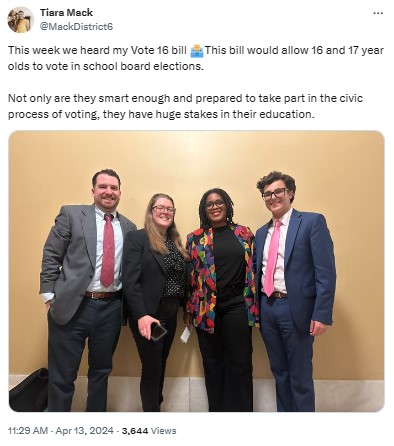 Teenagers lack the maturity and experience to know what it is they need to learn or how it should be taught. Raising doubt about adults capacity in this regard would be a fair response, but for this purpose we draw the line at 18. If anything, given the lengthening of adolescence in modern America, we should be considering a move in the other direction — opening elections only when people are a bit older.
Teenagers lack the maturity and experience to know what it is they need to learn or how it should be taught. Raising doubt about adults capacity in this regard would be a fair response, but for this purpose we draw the line at 18. If anything, given the lengthening of adolescence in modern America, we should be considering a move in the other direction — opening elections only when people are a bit older.
In any event, giving teens a means to vote themselves other people’s money would be more of a disaster than Rhode Island already faces.
While we’re on the matter, contrast Mack’s suggestion with progressives’ antipathy to school choice. One suspects she wants kids voting in government school elections because they’ll be easier for radicals and union organizers to manipulate.
As I suggested in a post this morning, it’s an error to think we can impose requirements on the status quo and not risk any loss of what we have. “Diversity, equity, and inclusion” (DEI) principles are the archetype of this thinking. Admittedly, I don’t know whether a U.S. Navy officer who didn’t notice that the scope on his AR was backwards, among other errors, in a photo-op — not to mention the assistants who prepared it and the media professionals who developed and promoted the post — was a victim of DEI, but it’s a good warning sign, nonetheless.
The more we prioritize things that are irrelevant (at best, nice to have) to jobs, the more likely it is that the people who take them will lack some other experience. We don’t live in a world in which there are just so many identically good candidates for every role that new requirements will have no effect. Pretending otherwise is going to get a lot of people killed.
This flaw of inexperience among the young (and progressives) has become far too pervasive in our society and is particularly notable in Rhode Island. People seem to think that the current state of affairs has been established and will continue indefinitely, so we can shape it like clay to the future we want to see. Investors will continue to build businesses… producers will continue to produce… minority parties will continue to fight the good fight to keep representative democracy honest. And so on. That’s not how reality works, though.
The above was my reaction to this tweet from left-wing Democrat state representative David Morales:
It might be nice to hire a chief executive with intimate and specific experience with the product, but past experience as a customer is not typically an overwhelming advantage and certainly not one that can’t be compensated once in the role (not least because customer experiences differ). Morales’s underlying assumption is that there is a pool of indistinguishably high-quality candidates for the role, so adding a mandate won’t have any negative effects.
The more likely outcome, from which Rhode Island increasingly suffers, is that the pool of candidates will be so uniformly unqualified that additional requirements won’t make things notably worse. The first step to fixing this problem is a more mature understanding of how reality actually functions.
On the list of people for whom the exposure of social media has been a source of disappointing exposure, novelist Stephen King has got to be near the top. Like his books or not (and, honestly, given the content, I regret the influence that he had on my younger life), authors are generally placed in the “intellectual” category, and one would expect more insight than tweets like this:
I’m on the pro-life side of this issue, but I also wish we could have honest discussions about public policy. The anachronism of this state law isn’t evidence that the federal government has to set policy for every state in the country, which was essentially the state of affairs while the horrible Roe v. Wade ruling was in effect. Rather, it should be a reminder that we have an entire system built around the principle that people can change the laws under which they’re governed over time.
It’s telling that advocates for the permissibility of killing of children are so much more focused on deriving political benefit from old laws than changing them where they can be changed. Apparently, what they really want is a world in which a rich old writer from Maine can tell the people of Arizona what sort of laws they live under.
Politics This Week: The Twilight Generation of Political Normalcy in Rhode Island
John DePetro and Justin Katz worry about the significance of creeping lunacy in RI politics.
Politics This Week: The Era of Messaging
John DePetro and Justin Katz highlight some of the ways the local media and political establishment distort the public message.
Politics This Week: A New Stage for the Self-Promoter
John DePetro and Justin Katz check in on politicians’ emphasis on promotions.
Title IX Becoming a Victim of Its Own Success
Title IX has given generations of American girls and young women athletic opportunities on an equal footing, but that success has made it vulnerable to the latest social revolution.
Politics This Week: Political Unspeakables
John DePetro and Justin Katz highlight some unspeakable stories in RI.
Politics This Week: The Era of Messaging
John DePetro and Justin Katz highlight some of the ways the local media and political establishment distort the public message.
Politics This Week: A New Stage for the Self-Promoter
John DePetro and Justin Katz check in on politicians’ emphasis on promotions.
Title IX Becoming a Victim of Its Own Success
Title IX has given generations of American girls and young women athletic opportunities on an equal footing, but that success has made it vulnerable to the latest social revolution.
Politics This Week: Political Unspeakables
John DePetro and Justin Katz highlight some unspeakable stories in RI.
Politics This Week: Arrested Hope
John DePetro and Justin Katz review some of the distractions and calamities in Rhode Island government.
Reflecting on Rhode Island’s Robbers
Representative Michael Chippendale directs Rhode Islanders’ attention to the party responsible for the Ocean State’s condition.

Such stories as this one are among the first things to come to mind every time our political system lurches left:
Over a decade ago, UCLA physician-scientists began using a pioneering gene therapy they developed to treat children born with a rare and deadly immune system disorder. They now report that the effects of the therapy appear to be long-lasting, with 90% of patients who received the treatment eight to 11 years ago still disease-free. …
In the gene therapy approach detailed in the new paper, Dr. Donald Kohn of UCLA and his colleagues removed blood-forming stem cells from each child’s bone marrow, then used a specially modified virus, originally isolated from mice, to guide healthy copies of the ADA gene into the stem cells’ DNA. Finally, they transplanted the cells back into the children’s bone marrow. The therapy, when successful, prompts the body to produce a continuous supply of healthy immune cells capable of fighting infections. Because the transplanted stem cells are the baby’s own, there is no risk of rejection.
This sort of thing requires large, risk-taking investments (including the learning investment of the researchers themselves). It requires functioning supply chains. It requires all of the things that innovative businesses require, which can fall apart faster than we like to think.
In New York City, a judge has suspended a father’s visitation rights to his daughter “unless he submits COVID-19 tests on a weekly basis or gets vaccinated.” He’s had the virus before, as well.
The key, though, is the judge’s reasoning, which is (let’s say) pretty far from the actual science:
“Here, in-person parental access by defendant is not in the child’s best interests, and there are exceptional circumstances that support its suspension,” wrote Justice Matthew Cooper, according to the New York Post, in a case involving the father’s divorce and custody dispute over his 3-year-old daughter.
Cooper also wrote that that the “dangers of voluntarily remaining unvaccinated during access with a child while the COVID-19 virus remains a threat to children’s health and safety cannot be understated.”
The Democrat candidate for Virginia governor, Terry McAuliffe, agrees with Democrats in Rhode Island that schools should engage in a conspiracy to lie to parents whose children may be exploring a change of their gender. I’ve long wondered what the mechanics of this deep deception would look like, and it’s frightening to know it’s a nationwide question.
It’s also discouraging to think how much this attitude seems to be part of the public school culture, as indicated by the “red flag” of a district refusing to provide access to library catalogue lists.
I find self repeatedly coming back to a photo that John DePetro posted of the controversial meeting of the North Kingstown School Committee last week. As reported, Chairman Gregory Glasbalg ended the meeting on the pretense that two people in the room were not wearing masks. Given that excuse, what do you notice about the police who were called to disperse them in this image:

And we’d hardly know it if John DePetro weren’t paying attention.
















